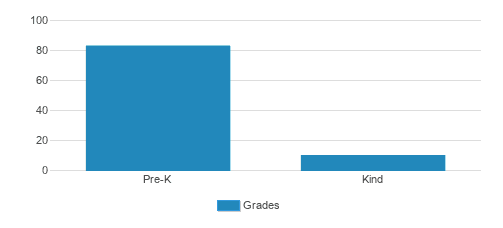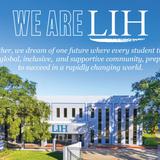Smaller Scholars Montessori Academy serves 93 students in grades Prekindergarten-Kindergarten, is a member of the American Montessori Society (AMS).
The student:teacher of Smaller Scholars Montessori Academy is 7:1 and the school's religious affiliation is Nonsectarian.
Quick Stats (2025)
- School Type: Montessori School
- Grades: Prekindergarten-Kindergarten
- Enrollment: 93 students
- Average class size: 25 students
- Application Deadline: None / Rolling
- Source: Verified school update
School Overview
School Type
School Membership(s)School Assoc.
Religious Affiliation
Grades Offered
Grades Prekindergarten-Kindergarten
Offers Post-Graduate Year
Yes
Year Founded
1985
Summer School Offered
Yes
Student Body
Total Students
93 students
Student Body Type
Co-ed
% Students of Color
50%
State avg.: 41%
Students by Grade

Academics and Faculty
Total Classroom Teachers
13 teachers
Student : Teacher Ratio
7:1
National avg.: 13:1
Average Class Size
25 students
Classroom Dress Code
Casual
Uniform from Parker School Uniform
Tuition and Acceptance Rate
Admission Deadline
None / Rolling
Tuition Notes
Call for tuition
Admissions Director
Joyce Anderson
Source: Verified school update
Frequently Asked Questions
When is the application deadline for Smaller Scholars Montessori Academy?
The application deadline for Smaller Scholars Montessori Academy is rolling (applications are reviewed as they are received year-round).
In what neighborhood is Smaller Scholars Montessori Academy located?
Smaller Scholars Montessori Academy is located in the Energy Corridor neighborhood of Houston, TX. There are 3 other private schools located in Energy Corridor.
School Reviews
Endorse Smaller Scholars Montessori Academy. Endorsements should be a few sentences in length. Please include any comments on:
- Quality of academic programs, teachers, and facilities
- Availability of music, art, sports and other extracurricular activities
- Academic or athletic awards
Recent Articles

A Parent's Guide To Understanding High School Teaching Methods
This comprehensive guide helps parents navigate the various teaching methods used in today's high school classrooms. By understanding these approaches, you'll be better equipped to support your teen's learning journey, communicate effectively with teachers, and create a complementary learning environment at home.

February 08, 2025
Social Emotional Learning: Education's Hidden SymphonyA musician's perspective on Social Emotional Learning reveals how this educational framework orchestrates success through five essential emotional competencies.

January 24, 2025
A Roadmap For Starting A Private SchoolUse this roadmap as a set of talking points with your trusted mentors and professionals to start the private school of your dreams. You're not alone. Over the years, hundreds of folks like you have had the same dream. From Quintilian to Maria Montessori to Lucy Madeira Wing, visionary educators have established schools to teach according to their beliefs and methodologies.

















